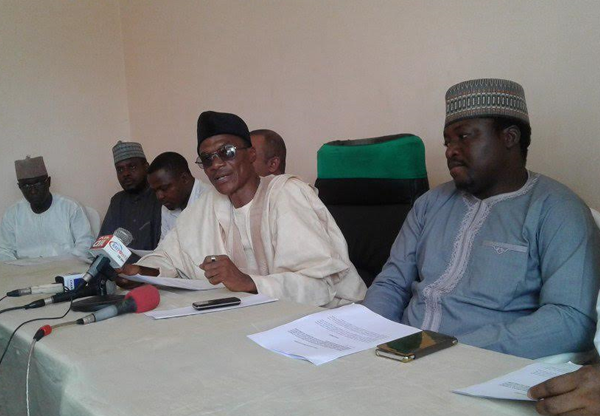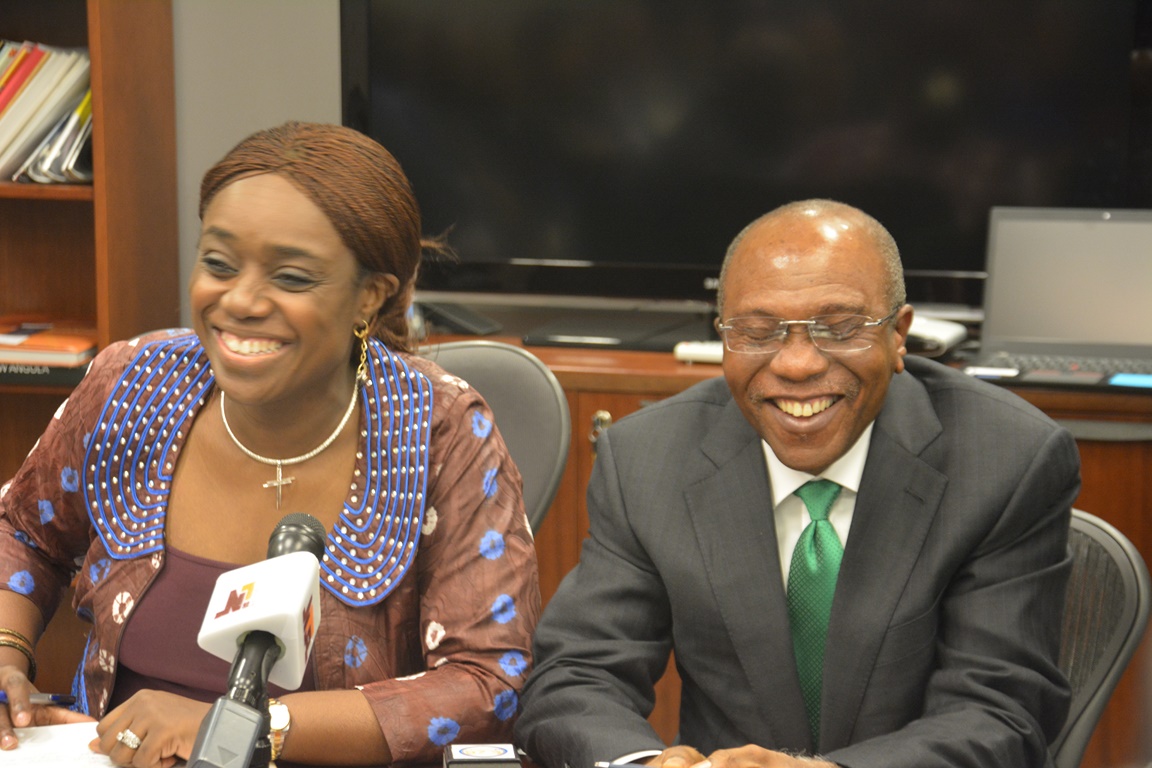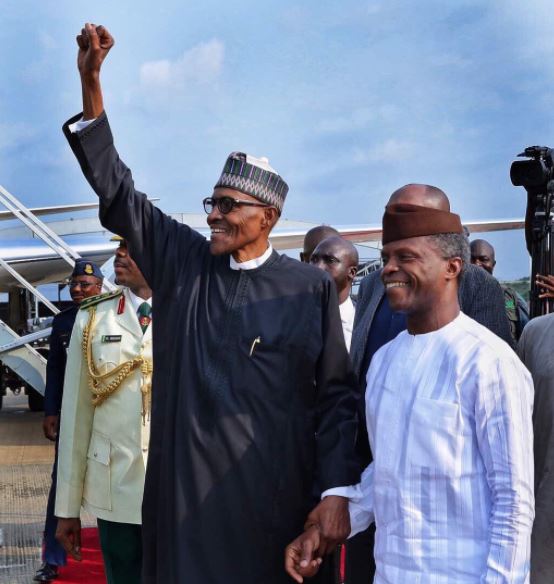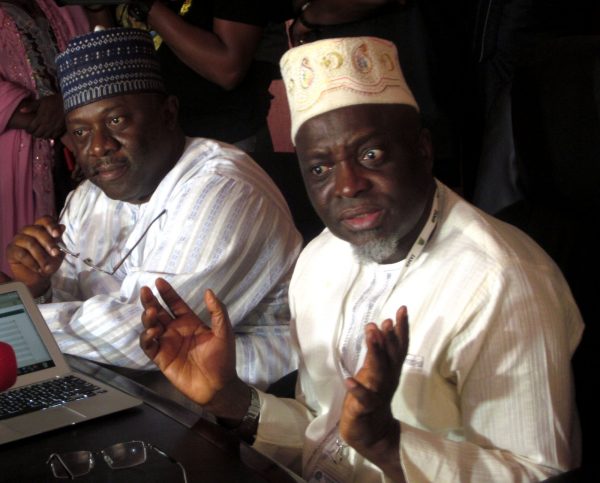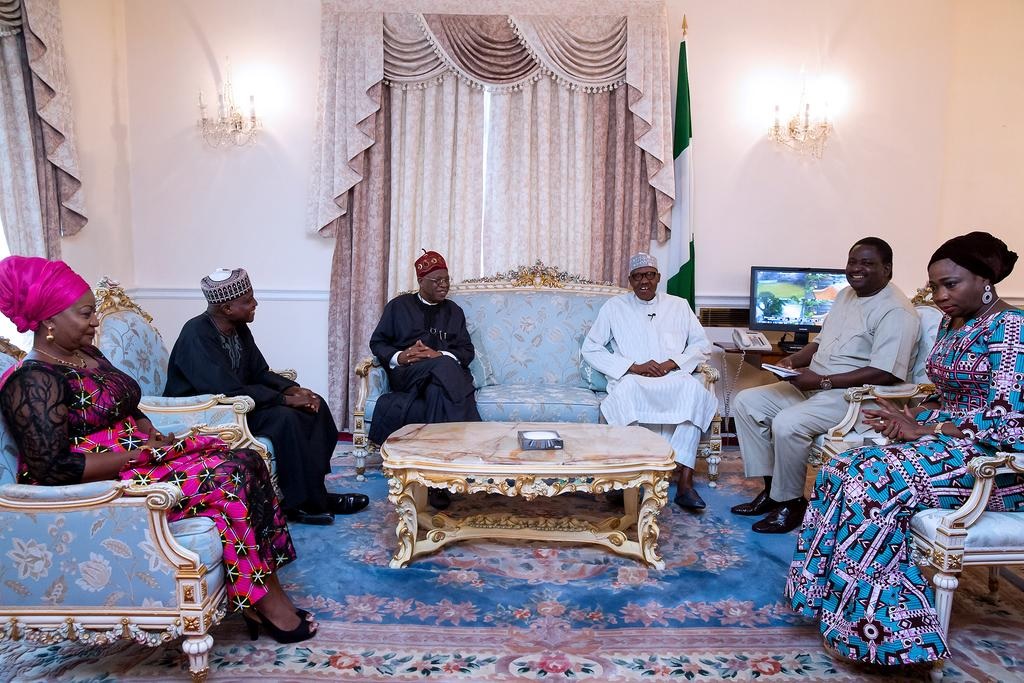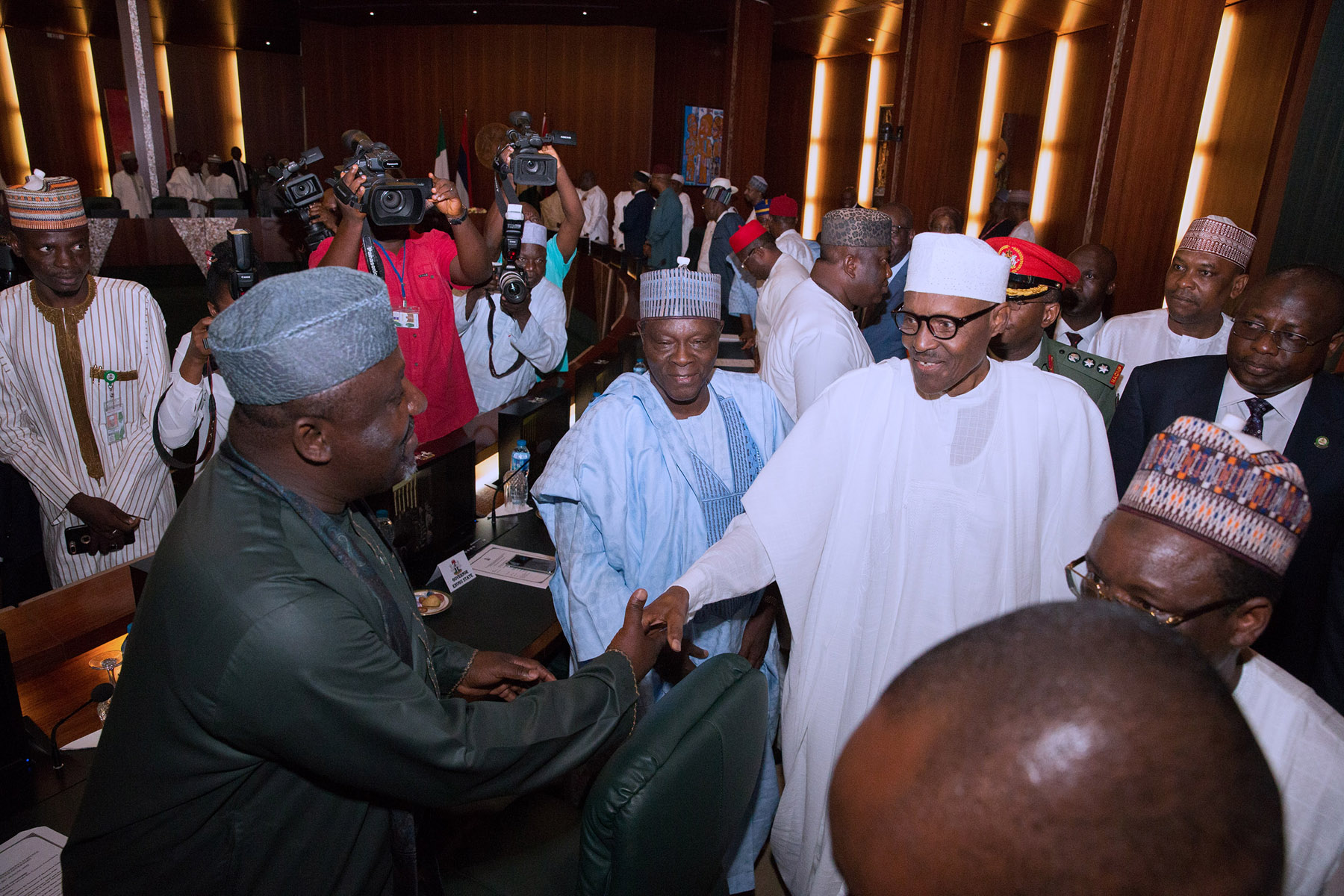Arewa Youths
BY FRANCIS ANEKWE OBORJI
“In your hearts honor Christ the Lord as holy, always being prepared to make a defense to anyone who asks you for a reason for the hope that is in you; yet do it with gentleness and respect” (1 Peter 3:15).
I have premised our article with this brief allusion to the first letter of Peter in order to buttress the main point of our argument.
This article is necessitated by the on-going debate concerning the alleged fear that Nigerian government is about to criminalize and classify as terrorism what it terms as “hate-speech.” The article is also motivated by the recent “terror” attack of worshippers at St. Philips Catholic Church, Ozubulu, Anambra State, on Sunday, August 6, 2017, Feast of Transfiguration of our Lord Jesus Christ.
Advertisement
Inasmuch as I abhor and condemn hate-speech in all ramifications, however, my proposition in this article is that ethnic-hate is the problem with Nigeria, NOT the so-called hate-speech. The proponents of hate-speech as the nation’s problem do not want to get to the heart of Nigeria’s problem.
What is fueling hate-speech in Nigeria today is ethnic-hate. Ethnic-hate in Nigeria, like racism, is a system’s problem and it is structural.
Both the citizens and the state are equally, guilty of ethnic-hate in Nigeria. Therefore, the question of hate-speech must not be restricted to hate-language of ordinary citizens. The Nigerian state and its functionaries are number one culprits of ethnic-hate as well as hate-speech. This is because Nigeria is structured and governed on the basis of ethnic-hate and hate-language.
Advertisement
Although, it is subtle, since it is insidious and not often discussed publicly, yet ethnic-hate is what has been determining Nigerian state’s governance culture and relationship with its constituting entities since its amalgamation by Great Britain in 1914.
All these show that after 57 years of political independence, we are yet to be clear of what type of nation we want to build in Nigeria. Moreover, what has been clear from all that have been happening in the country these last years, is that majority of its citizens are yearning for a ‘New Nigeria’.
I do not think that issuing threats is the best way government and its agencies can handle these agitations and increasing disaffections with the Nigerian state on the part of many of its citizens today. The problem will not also be resolved by brushing aside the value of freedom of expression and importance of open dialogue with the people. As the saying goes, ‘sovereignty belongs to the people.’
It is painful that since independence in 1960, the country has not been able to produce a workable Constitution approved by the people through referendum. Even the current Constitution we are using does not derive its legitimacy from the people. It came from a Military Junta, dominated by people from a particular ethnic and religious group.
Advertisement
Again, we must bear in mind that the country’s sovereignty is in the hands of the people, not their representatives (National Assembly) or the National Council of States, which is just an advisory body. This means that the government must listen to the people, get them involved in fashioning a “New Nigeria.”
Many Nigerians today want to move away from the present structured ethnic-hate governed Nigerian state to a truly, free modern democratic nation-state that is neutral to all its citizens. It is a call for a ‘New Nigeria’, that we all can call our own, a ‘New Nigeria’ that is home to all of us and not just to a section of the country as it is in its present structure and form.
The problem however, is how do we get the kind of visionary and focused leaders in Nigeria today that can take us to the promised land. Men and women not guided by ethnic-hate and religious bigotry, but by the singular desire to fashion a ‘new society’, in fact, a truly modern democratic nation-state where every citizen will feel belonged.
In other words, Nigeria, today, more than ever, needs men and women who are ready to sacrifice themselves for the building of a ‘new society.’ That is, men and women ready to give account of their chosen vocation and the hope animating their vision for the emerging ‘new society.’
Advertisement
This is the challenge of Peter’s letter cited above. Peter’s letter is addressed to Christian communities located in five provinces of Asia Minor, including areas evangelized by Paul (Acts 16:6-7; 18-23). Peter encourages Christians there to remain faithful to their standards of belief and conduct in spite of threats of persecution.
Peter’s letter stand out and speak directly to the character of Christian hope and bear direct relevance to a conversation about hope at a time like ours today in Nigeria. No other book in the New Testament refers as often to the suffering of Jesus and at the same time is so filled with a spirit of joy as the first letter of St. Peter. The themes of life and death, suffering and praise, pain and hope are interwoven and run together throughout.
Advertisement
The Christians to whom Peter is writing are scattered in remote parts of the empire, cut off from the mainstream of the Roman empire and viewed with suspicion, if not open hostility. This is why Peter addresses them as “exiles” and as “aliens and sojourners.” What keeps them grounded and going in their sojourn existence is the reality of their
identity as God’s new people, who have been called out of darkness into God’s wonderful light and therefore are “a chosen race, a royal priesthood, a holy nation, a people for his own possession” (2:9).
They are to rejoice (even in the midst of tribulations) because of their new identity and new life they have received: “You have been born again, not of perishable seed but of imperishable, through the living and abiding word of God” (1:23).
Advertisement
All these confirm that at the heart of Peter’s letter is a clear identity of a people and vision of their community as God’s new people. Accordingly, Peter’s exhortations are addressed not simply to individual Christians but to the community of those born anew, who must maintain good conduct among the Gentiles, “so that when they speak
against you as evildoers, they may see your good deeds and glorify God on the day of visitation” (2:12).
THE NARRATIVE OF ETHNIC-HATE IN NIGERIA
Advertisement
For some weeks now, I took a leave from writing and commenting on social issues in Nigeria. I know that most of my readers may be wondering what is going on. Have I become disillusioned and given up the hope for better tomorrow in our land? It is none of these! Because as a Christian I concur with the author of the first letter of Peter cited above about the need to continue the struggle and hope for better tomorrow.
However, my decision for some weeks break in writing on social issues in Nigeria, was to give myself some private moments in prayer in honor of the victims of the gunmen terrorists’ attack this August at the Ozubulu Church in my home state of Anambra.
In all sincerity, and as a Catholic priest, I am yet to recover from the trauma of news of that senseless incident. For the worshippers at St. Philips Catholic Church, Ozubulu, indeed for all the people of good-will, Sunday, August 6, 2017, has gone down in history as a bloody Sunday. For the community of Ozubulu and people of my home state,
Anambra, the horrors of that bloody Sunday, is better imagined than real.
As I sat in my house that bloody Sunday morning, listening to news of the massacre of innocent worshippers by gunmen – horrifying photos from social media clips, tears and sorrow ordeals of survivors at St. Philips Catholic Church Ozubulu, I began to wonder what is wrong with us human beings! I caught myself asking whether God did not sometimes wonder why He had ever created us. As Archbishop Desmond Tutu would put it: “What in the name of everything that is good ever got Me to create that lot?”
This brings me to the main argument of our article, namely, ethnic-hate as the problem with Nigeria.
As I contemplated on the “terror” attack at Ozubulu Church, my pain multiplied all the more by the way the Police hurriedly put forward the narrative of ‘feud of drug dealers’, just few minutes after the unfortunate incident had happened. As if that was not enough, we were tuned to the usual ETHNIC SENTIMENTS on this most serious matter.
The Police Commissioner of Anambra State, Mr. Garba Umar in his Press release few minutes after the incident at Ozubulu, told the world that the mayhem was carried out by a lone gunman, a native of the area, _WHO SPOKE IGBO while shooting. The question is, ‘why has the police to jump into this conclusion (of the gunman being _IGBO AND NATIVE OF OZUBULU), when no investigations had been carried out?’ (Up to the time of writing this article, no serious investigations have been carried out on the Ozubulu Church shooting. Like a typical Nigeria case,
I am sure that is where it will end).
Moreover, if the Police Commissioner was so sure of what he said, why is it that up-till now the Police had not told the world who this gunman or two quarreling business men in South Africa from the area are, or at least members of their families interrogated.
No thorough investigations had been done and the media was awash with the ‘feud of drug dealers’ news’, thanks to the police narrative. This re-enforces the usual exotic stigmatization of people from that part of the country as “fraudsters” by a section of the media and people from some other parts of the country.
No doubt, there may be more to the reason behind this type of _ETHNIC NARRATIVE_ put forward by the Police on the Ozubulu Church shooting. However, no matter what, that alone cannot justify the shooting and massacre of innocent worshippers at Ozubulu Church that Sunday morning. Moreover, only the gullible could believe the Police ethnic-hate biased narrative of the Ozubulu Church shooting.
This is because at the heart of the media exotic reporting on the Ozubulu incident, the Police Force Public Relations Officer, Jimoh Moshood, granted a television interview where he spoke about his recent visit to South Africa following the incident of the much celebrated, Kingpin kidnapper, Evans.
Mr. Moshood said that when he was in South Africa, he met with his counterpart there who told him that he is happy he (Moshood) is from Yoruba and not from that other tribe. Again, here is a Nigerian Public Police Officer, on a foreign mission, playing ethnic-card on national television interview.
Furthermore, the ethnic narrative of the Ozubulu incident by the Police as well as Mr. Moshood display of ethnic card at South Africa, reminded me of a recent experience of a son of a friend of mine from Abia State who gained admission through JAMB to study agricultural science at a Federal University in Niger State. My friend told me how his child came back from Niger State where he went to register at the university there, terrified. The son of my friend, still a teenager, had never been to Niger State nor had he travelled alone that far before.
The child narrated how he met with the university registrar and admission board members of the university who acknowledged that he was among those offered admission to study in the institution. However, they told him that he can only be registered to study there on one condition, namely that he accepts to become a Muslim. That means, the admission board asked the Nigerian child to renounce his Christin faith in order to be admitted into a federal university in Niger State.
Sensing a danger, however, the boy asked the admission board members that he be given some minutes to go outside and telephone his parents. That was his saving-grace. He phoned his mother who asked him to take the next bus and return home immediately.
In Nigeria, what determines your acceptability for university admission, job opportunities, etc., is your ethno-religious identity. This is the problem with Nigeria, not the so-called hate-speech.
Again, not long ago, a friend of mine told me of how he forwarded to a highly placed religious leader, with his smartphone, a photo of that little girl of five years old, who was among hundreds of villagers killed by Fulani herdsmen militia at Nimo Nibo in Uzo-Uwani, Enugu State early last year. She was found dead at the center of the village square, bending with her knees like someone in prayer. The religious leader on receiving the clip from my friend’s cellphone replied immediately, with stern warning, “This my phone is not for hate-speech!”
This made my friend to wonder: what does hate-speech mean in Nigeria? Is decrying Fulani herdsmen terrorism a hate-speech? Is sharing photos of victims of Fulani herdsmen terrorist attacks, hate-speech?
Because what the religious leader we mentioned above is warning my friend against is that circulating photos and news about the atrocities committed by terrorist activities of Fulani herdsmen militia in Eastern Nigeria or elsewhere is hate-speech. In Nigeria, it is hate-speech to speak or rather criticize the terrorist activities of marauding Fulani
herdsmen militia, who roam around with AK47 in the name of cattle rattlers, invade our villages and farms with their cows, rape our mothers and daughters.
It is also hate-speech in Nigeria to criticize the government ineptitude to call to order the Fulani herdsmen militia terrorists. In Nigeria today, public complaint of citizens is called hate-speech (or hate-language).
The call by some for restructuring of Nigeria’s political system is also interpreted as hate-speech. All these mean that what government officials and their social media warriors or commentators have labelled as hate-speech is nothing else but the yearnings of citizens for good governance and better Nigeria.
Moreover, the criticisms of members of the opposition party against federal government’s lopsidedness in appointments in public offices and selective pursuit of fight against corruption by the EFCC, is also termed hate-speech.
The criticisms of the citizens against the domination of the military, police, customs, federal ministries and parastatals, etc. by people from one particular ethnic and religious group, is also seen as hate-speech by those in corridors of power.
Furthermore, in Nigeria today, it is hate-speech when a group or region of the country, which felt marginalized, calls for self-determination of their people through the legal means of referendum. In Nigeria, the call for referendum is visited with threats of war by the government. The region calling for referendum is put under military siege, the whole place militarized through the government order.
Referendum is a common event in advanced countries, including some African states, whenever the need arises. However, in Nigeria, it is hate-speech to speak of referendum, be it for a popular approval of new constitution or for those calling for self-determination of their marginalized people.
Moreover, in Nigeria, it is hate-speech to speak against pollution of the Niger Delta by Oil Companies and Miners operative in that area. What is not hate-speech, however, is accepting the status quo and singing the praises of government in power even when the government could not provide the basic service of security of lives and property of the citizens.
In other words, Nigeria’s problem must be located where it belongs. The attempt by one or two major ethnic groups in the country to claim to themselves the right to dominance in governance and national affairs is the problem with Nigeria.
Hate-speech draws from this source, which shows that all is not well with the nation’s founding political system and structure. These faulty foundations and structure are things fueling the agitations and frustrations of many citizens today against the Nigerian state.
This is where we should locate the citizens’ lamentations and pathological criticisms against the Nigerian state and political system or structure. This is not hate-speech, but rather the desire and hope of common masses for a better and new Nigeria that is home to all, irrespective of tribe or creed.
ETHNIC-HATE IS A SYSTEM’S PROBLEM
Hate is hate, whether in speech, ethnic or racist resentment. Therefore, it must be condemned whenever it raises its ugly head among the people.
However, in Nigeria today, what we call hate-speech is often expression of strong dislike, hatred of an individual or a group of people because of their place of origin or ethnic identity. Hate-speech therefore, is an expression of a deep-rooted hatred one harbors against the other because of his ethnic identity.
In Nigeria, ethnic identity determines one’s access to power and affluence. It is the underlying structure of governance or government machinery of the country.
Therefore, in Nigeria, ethnic-hate precedes hate-speech. To fight hate-speech we must first develop a political system and structures of governance that make ethnic-hate a thing of the past.
Where political system of governance of a nation is structured in such a way as to favor one ethnic group against the other (or others), it is hypocritical to talk of criminalizing the so-called hate-speech or to term it the problem of the country. What needs to be done first, is to uproot ethnic-hate from Nigeria’s political system and structure. Once that is done, hate-speech will gradually, fissile away.
Nigeria’s problem is primitive ethnocentrism and religious bigotry promoted often through government machinery. A system that gives a monopoly of governance of a multi-ethnic and multi-religious country like Nigeria to people from a particular region is ethnic-hate, both in structure and content. Such a system has no future. A system that
frustrates people of one ethnic-group’s enterprise and give monopoly to people from a particular group – the domineering region, is ethnic-hate biased and therefore, has no future.
A system where the freedom of expression of its citizens is termed hate-speech or treason has no place in modern world. A system where, when the citizens express themselves about the state of their nation in social media, they are accused of crossing the ‘red lines’, has no place in the twenty-first century.
Furthermore, there is no place in the twenty-first century for a system that has not been able to provide job opportunities to our teeming young population, create an enabling environment for young Nigerian talents to shine at home. Today, most of our young people are migrating to the countries of Western world and Asia in large numbers, enduring all sorts of humiliation in foreign lands, because Nigeria has failed to offer
them hope.
A political system that has failed to provide security of lives and property to the citizens does not worthy it in the twenty-first century. A system under which we have not been able to provide steady electricity light for domestic and industrial use, reliable health-care delivery, liberal modern education system, good and standard network of roads,
railways, airports, waterways, etc. across the board, does not worthy it in this twenty-first century.
It would amount to a mistake and disservice to the nation for anybody to continue to defend what is not defendable. The system we have been running in Nigeria is not working. Therefore, it needs total overhauling. This is the naked truth! How many lives of our people must be lost before we begin to do the right thing?
Again, no nation is ever built by autocratic language or threats from its maximum leader against those who are expressing themselves about the state of their nation. Nations are built through ideas and sacrifices of competent individuals called upon by those in corridors of power to assist in directing the affairs of the nation. Nations are not built or run by threats or autocratic system.
The long dominance in running affairs of the nation by people of mediocrity has remained one of the greatest obstacles to achieving a true nationhood in Nigeria. In the words of Chinua Achebe:
“Nigeria… is a country where it would be difficult to point to one important job held by the most competent person we have. I stand to be corrected.” (Chinua Achebe, “The Trouble with Nigeria” (1983), p. 19).
Modern nations of the world are competing on ideas and excellence. Unfortunately, in Nigeria, we are competing on ethnic supremacy of one group over the other.
In Nigeria, men and women are judged not by the content of their character but by their ethnic identity. This is the tragedy of Nigeria.
Nigeria as a nation-state has become so mechanical, ethnic bigotry structured, that there is no place for majority of its citizens to breathe again. As a nation-state, Nigeria is supposed to be a country in constant renewal and transformation, carrying along all its citizens, without discrimination. But this is still far from being reality.
CONCLUSION
As a nation of multi-ethnic and multi-religious populations, Nigerian state should engage in dialogue with its diverse people on equal basis so as to fashion a way forward for better tomorrow.
Ethnic-hate in Nigeria is a system’s problem. Great nations of the world are made-up of people of diverse ethnic-nationalities. These great nations were able to overcome the trappings of ethnocentrism through good governance, workable political system and structures that treat equally, all the citizens and regions of the nation-state in question.We cannot say the same thing of Nigeria as it is presently structured.
Great nations of the world that have overcome both ethnic-hate and hate-speech were able to do so because they developed creative constitutions, common laws and legal systems that are neutral to all ethnic groups and religions operative in the country.
Any act of favoritism of the state to one ethnic group or to a particular religion in a multi-ethnic nation-state such as Nigeria destroys the foundation of such a nation-state. This is a temptation Nigeria, is yet to overcome.
Francis Anekwe Oborji is a Roman Catholic Priest. He resides in Rome where he is Professor of Missiology (mission theology) in a Pontifical University.
Views expressed by contributors are strictly personal and not of TheCable.
Add a comment
